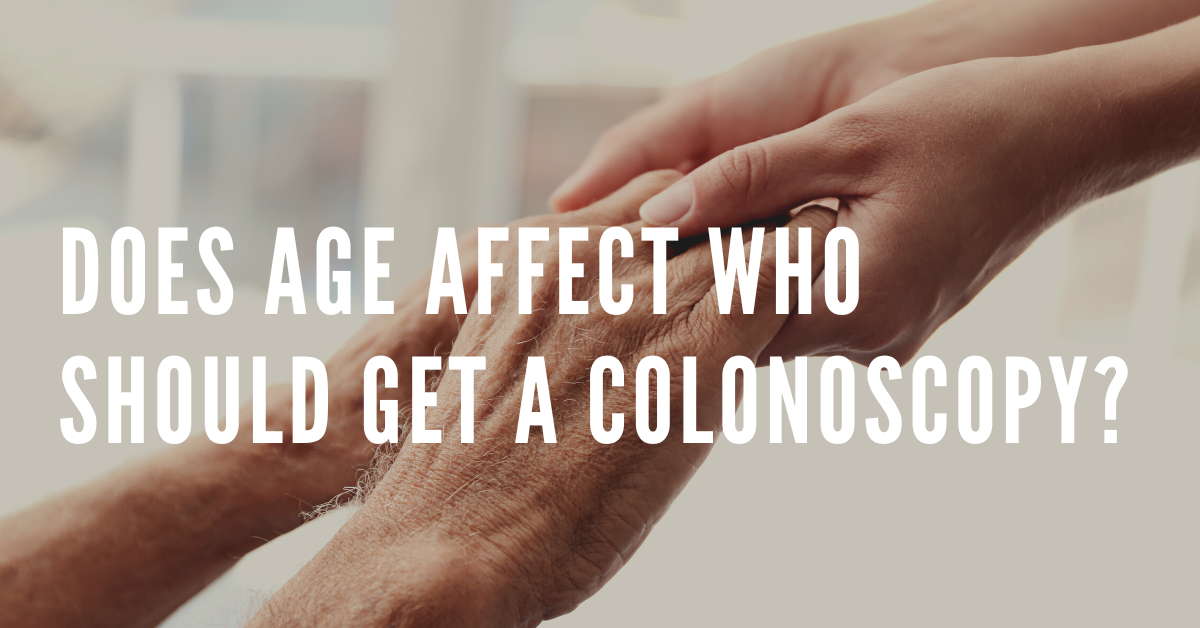
While there is no set upper age limit for colon cancer screenings, most doctors agree that the benefits of screening decrease and the risks of screenings increase after the age of 75. Of course, the benefit-to-risk ratio can vary for every person depending on factors such as physical health, mental health, family history, and other diseases.
Let’s take a look at the different variables that might play into your doctor’s decision and what are the other options available to those who should not get a colonoscopy.
Many times, a colonoscopy is the best option for identifying colon cancer. However, sometimes a colonoscopy may not be the most beneficial course of action, especially for those who are elderly. These are a few things your doctor will consider when determining if a colonoscopy is right for you or a family member:
You are seventy-five or older.
After the age of 75, the decision to have a colonoscopy should include a discussion between you and your physician. The decision should be made on a case-by-case basis. In a new study published on May 20, in JAMA Oncology, researchers found that patients may benefit from screening beyond age 75. They found that the risk of dying from colorectal cancer was reduced by more than a third in people over the age of 75 who had been screened by colonoscopy or sigmoidoscopy compared with people in the same age group who did not undergo either of these screening tests.
You’ve had a negative colonoscopy in the past ten years and don’t have a family history of colorectal cancer.
In a study conducted in 2006, 1,256 patients who had repeated colonoscopies 5 years after a negative baseline examination, no cancers were found in the 2nd examination. Plus, 5 years after screening the risk is 45% lower & after 10 years lowers even more to 72%. A more recent study in 2021 also found that “after 24 years of follow-up . . . found that the CRC-specific mortality rate was lower in people who self-reported at least 1 screening colonoscopy compared with those who had never had a screening colonoscopy.” In addition, “this study found that screening colonoscopies were associated with lower CRC mortality from both distal and proximal cancers.” They also “found that people aged 70 to 74 years who underwent a screening colonoscopy had a lower 8-year standardized risk for CRC than those who did not undergo the test.”
In short, if you have had a negative screening within 5-10 years and you or a family member are now 75 or older, your risk of having colon cancer is significantly lower!
Your health warrants choosing another, less invasive test instead.
Although a colonoscopy is the most thorough way to assess the health of your bowels, there may be situations where a less invasive test would be a better fit for the elderly. An example of this could be when the patient has dementia and their physical health is also declining. A colonoscopy may not be the best course of action if the patient cannot understand what the preparation or procedure would involve or why they are there in the first place. In these types of situations, there are other options available.
Some alternate options that your doctor may recommend include:
- CT colonography, which is a CT scan of your entire colon
- Double-contrast barium enema, which involves an x-ray of your colon
- Fecal DNA test, which is a lab test done on a stool sample
- Fecal occult blood test, which is performed on a stool sample
- Sigmoidoscopy, which is an internal scope of the lower third of your colon only
While a colonoscopy is usually the ideal way of identifying polyps and colorectal cancer, it is always better to have some form of testing done than to avoid it altogether. As I like to remind my patients, early detection truly does save lives. Colorectal cancer has one of the highest survival rates if it is caught early.
As always, these conversations and decisions must be made with your doctor, but I wanted to share that there are options available!
Want to make an appointment to talk about your options? Click here.




